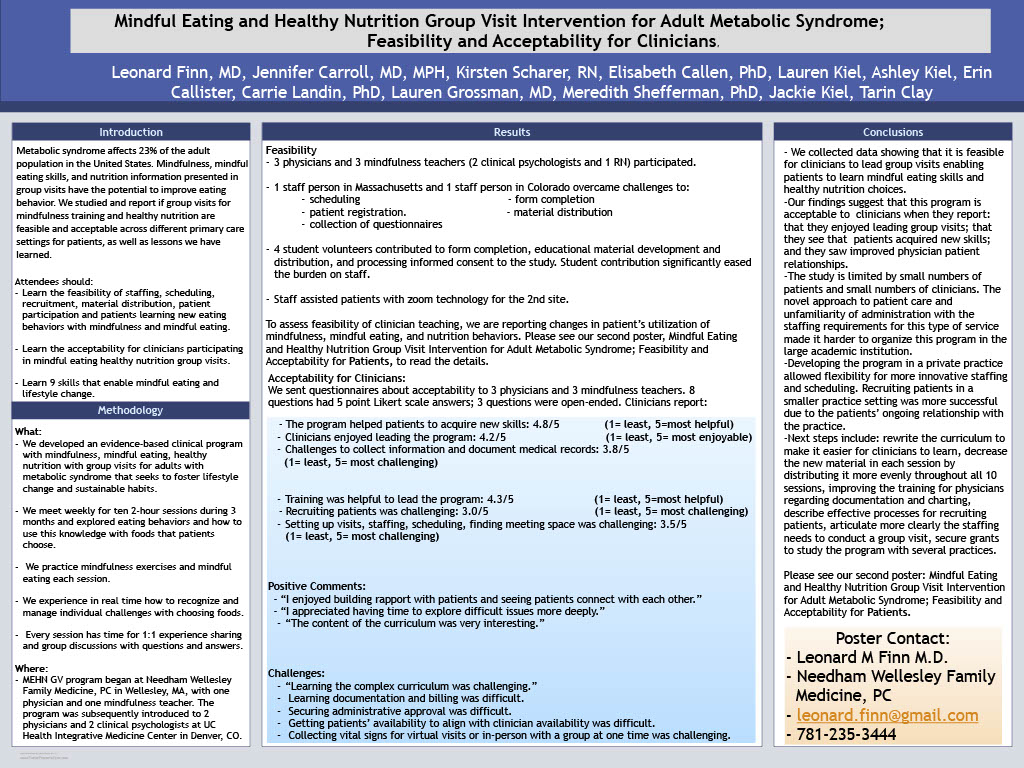PRP056: Mindful Eating Healthy Nutrition Group Visit for Adult Metabolic Syndrome; Feasibility Acceptability for Clinicians
Leonard Finn, MD; Jennifer Carroll, MD, MPH; Elisabeth Callen, PhD; Lauren Kiel; Lauren Grossman; Tarin Clay, BA; Carrie Landin, PsyD; Ashley Kiel; Jackie Kiel; Kirsten Scharer
Abstract
Context: Metabolic syndrome, a cluster of risk factors including elevated fasting glucose, high triglycerides, and hypertension, low HDL and abdominal obesity, affects 23% of adult population in the United States. People with metabolic syndrome are at high risk for diabetes and cardiovascular disease and have higher all-cause mortality. Usual treatment for metabolic syndrome is weight loss through diet and exercise. Evidence supports the use of mindfulness as a strategy for effective weight management. Objective: We studied if group visits for mindful eating and healthy nutrition education are feasible and acceptable across different primary care settings for patients, staff and clinicians. Study design: Pilot/feasibility study. Setting: 1 group - Needham Wellesley Family Medicine PC, a physician-owned family medicine practice in Wellesley, MA. and 2 groups - UC Health Integrative Medicine Center in Denver, CO. Population Studied: 3 physicians, 3 mindfulness teachers. Intervention: Group visits with mindfulness, mindful eating, healthy nutrition (MEHN GV) for adults with metabolic syndrome and related conditions. MEHN GV curriculum: evidence-based principles of mindfulness, mindful eating, healthy nutrition, and activity to improve treatment of metabolic syndrome and related conditions. Curriculum fosters sustainable lifestyle change in eating behaviors, nutrition choices, activity, self-efficacy, stress-management, goal setting. Physician, mindfulness teacher, and patients meet for group visits weekly for ten weeks + 3 monthly visits. Outcome measures: survey questions and semi-structured interviews for physicians and mindfulness teachers. Collected feasibility data for scheduling, staffing, recruiting patients, patients acquiring skills/knowledge & acceptability to patients. feasibility & acceptability to clinicians learning and leading the curriculum. Results: Clinicians report: time to explore difficult issues more deeply; really enjoyed sessions; experience was moderately to very helpful to patients. Challenges: learning the complex curriculum, charting for a group of patients, training for group visits. Outcomes to report: survey answers and interview results.

Diane Harper
harperdi@med.umich.edu 11/21/2021Thank you for sharing with us at NAPCRG.